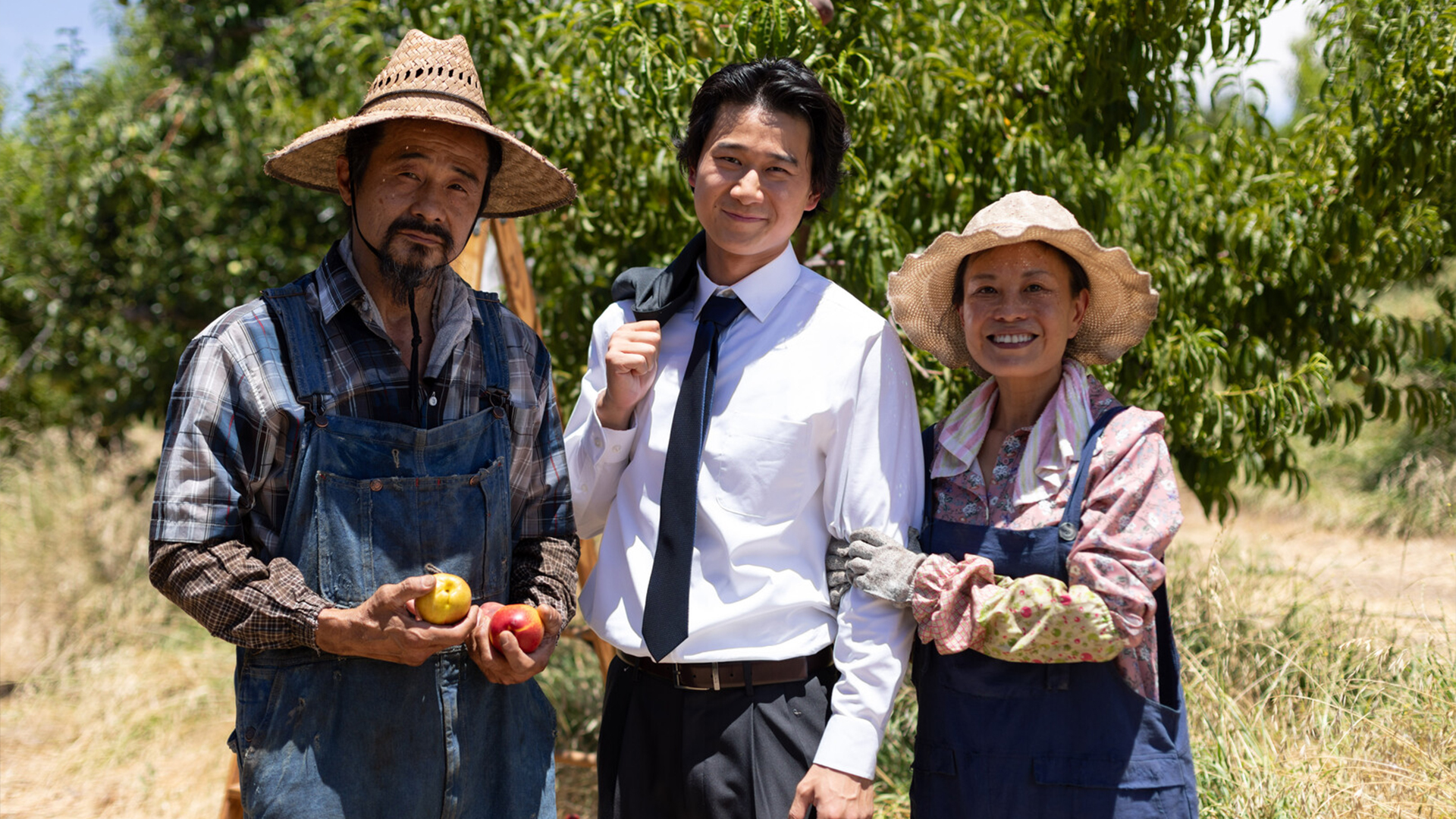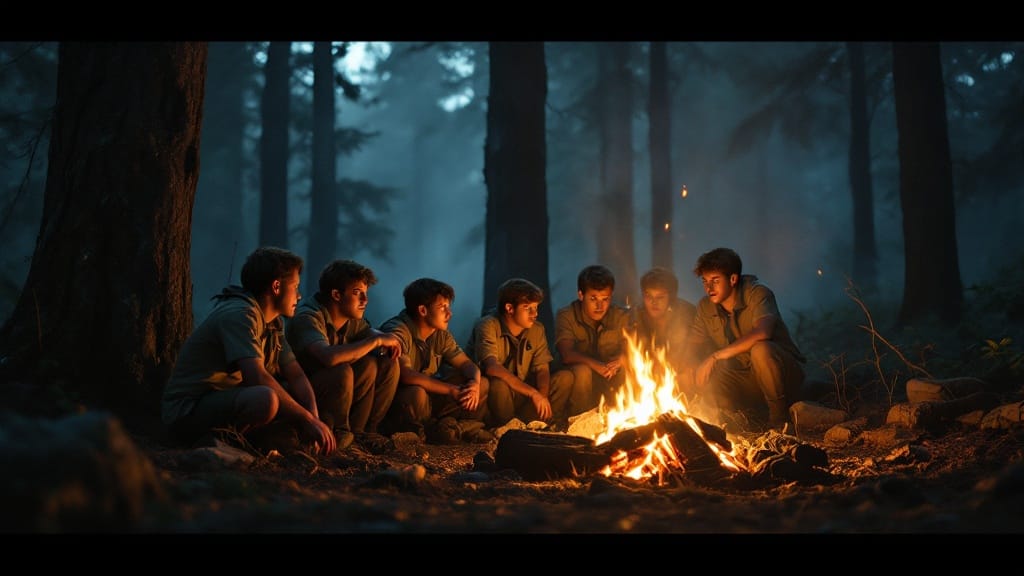Drama
A Better Place

Directed by Shih-Chun Hsiao
Warning – This review may contain spoilers.
A Better Place tells the story of Henry, a son who returns home to convince his aging, immigrant parents to sell their beloved family farm to an oil company offering a significant financial incentive. The core conflict revolves around differing generational perspectives: Henry views the offer as a chance for a better life and future security, while his parents value the home they’ve built through years of sacrifice and hard work. The following morning, Henry finds the deal has been signed, not for the financial gain, but because his parents believe it’s the best way to leave a legacy for their grandson—a better future. The film explores themes of family, sacrifice, and the complexities of immigrant life, where the definition of “a better place” varies between generations.
The film effectively captures the emotional and cultural tension between Henry’s desire to move forward and his parents’ deep connection to the land and their legacy. The performances, especially from the actors playing the parents, are powerful and grounded, conveying a deep sense of pride, love, and sorrow. The film’s pacing is steady, allowing the emotional weight of each scene to resonate without feeling rushed. The dialogue is thoughtful and authentic, particularly in the dinner scene where the generational divide becomes most apparent. The film’s message—that different generations may define success and security differently—feels universal and relatable. Audiences will likely connect with this intimate exploration of family dynamics, particularly those who have experienced similar conflicts over heritage, culture, and progress.
From a technical standpoint, A Better Place shines with its stunning cinematography and well-executed production values. The lighting is consistently strong, particularly in the outdoor scenes of the family walking through the orchard, which are visually beautiful and symbolic of the parents’ deep-rooted connection to their home. The cinematography complements the emotional beats of the story, with carefully chosen shots, such as the wide shots of the farm juxtaposed with the more intimate scenes around the family dinner table. These choices visually underscore the vastness of what’s at stake for the family, both in terms of land and legacy.
The sound design is effective for the most part, though there is a slight echo after the dinner scene, which briefly detracts from the overall smoothness of the audio. However, this is a minor issue in an otherwise well-edited film, where each scene transitions smoothly and the story flows without confusion. The editing ensures that the narrative remains clear, and the film’s structure is easy to follow.
Overall, A Better Place is an emotionally resonant film that tackles the complexities of family relationships, immigrant identity, and the sacrifices made in the pursuit of a better future. Its universal themes of home, legacy, and generational conflict are portrayed in a way that will connect with a wide audience. The strong performances, beautiful cinematography, and thoughtful direction make this a film that is not only enjoyable but also impactful in its storytelling.
Comedy
Troop 458

WARNING! This review contains SPOILERS!
Troop 458, written by Trevor Allen, captures the often daunting, yet transformative, experience of being the new kid in a world full of unknowns. We follow Sidney, an anxious boy thrown into his first Boy Scouts campout, where he faces both the perils of acceptance and the strangeness of his eccentric scout leader. As spooky campfire tales start to weave into reality, Sidney is forced to confront his fears head-on, finding moments of humor, adventure, and unexpected camaraderie along the way.
I like the concept of Troop 458 because it blends coming-of-age themes with a playful sense of adventure, all wrapped in an atmosphere tinged with just the right amount of mystery. Allen’s writing brings to life a cast of memorable characters, especially through Sidney’s journey of growth. The tension between humor and fear feels authentic to the Boy Scouts’ setting, and it captures the real challenges kids face when trying to fit in.
What resonated with me most was the screenplay’s exploration of courage—not just in facing mythical dangers but in embracing who you are, quirks and all. Some aspects could benefit from a clearer focus on character motivations and tighter pacing to keep the momentum strong, particularly during scenes that blur the line between myth and reality.
The dialogue is great in many places, offering humor that feels natural for a group of young scouts. There were moments where I felt the conversations could be a bit sharper or more distinct to heighten the comedic or emotional impact. Character development is a strong suit, with Sidney’s evolution being both relatable and satisfying, but secondary characters could have a bit more depth to elevate the ensemble.
Allen’s Troop 458 is polished, with solid grammar, spelling, and formatting that adhere to professional standards. The structure is clean and makes for an easy read, setting up scenes that are visually compelling.
Troop 458 delivers an enjoyable mix of humor, heart, and a touch of the supernatural, leaving me eager to see how it might come to life on screen.
Drama
Ellie

WARNING! This review contains SPOILERS!
Directed by Marcus Mejia
Ellie is a refreshing experience that pulled me right into the world of a young, shy man navigating a work meeting while secretly yearning for a bit of magic in his everyday life. We’re taken through his imaginative, musical daydream—a beautiful escape from reality that reveals his true desires. I loved how the film peeled back layers of his personality without a single word of dialogue. Instead, the music carried the narrative, and surprisingly, it worked so well.
Marcus Mejia did an excellent job blending dramedy elements to keep the film engaging. The moments of humor and more emotional beats make the film feel well-rounded. Mejia’s choice to swap dialogue for music was a bold move, and it paid off. I could feel the character’s internal struggles and hopes as the music brought out emotions words couldn’t.
The lighting felt intimate, almost like it was giving us a window into the protagonist’s soul, and the cinematography perfectly captured the whimsical tone of his daydreams. I noticed how smoothly the editing transitioned between reality and fantasy, which made the story’s pacing feel just right. The sound design was on point, with every beat of music syncing beautifully with the character’s emotional highs and lows.
I loved when the protagonist’s daydream overlapped with reality, creating this seamless blend that felt so relatable. I admired how it portrayed the quiet, unspoken dreams we all carry. It was a reminder of the power of our inner worlds and how much magic lies just beneath the surface of our everyday lives.
Ellie left a gentle yet lasting impression. It’s a unique, heartfelt short film that shows how creative risks can pay off. Ellie is a memorable journey that’s definitely worth the watch.
Drama
Finding Acceptance

Directed by Andrew DeBennett
WARNING! This review contains spoilers.
Watching “Finding Acceptance” was an experience that brought me back to those anti-bullying films we’d see in school assemblies. The story follows Mary, a new student in a wheelchair, navigating the often-tough world of school friendships. Initially, she faces teasing from her peers but finds a genuine friend in Liz, who even manages to extend kindness to Mary’s bully, Max. The message is straightforward and clear: acceptance and empathy matter.
I could see what the director was aiming for—Andrew DeBennett notes that the film was both a joy to create and a personal project. The heart of the story shines through, with Kaylah Pollock (Mary) and Laney Hansen (Liz) bringing warmth to their roles. Their connection feels genuine, even if the overall story feels a bit too familiar.
Technically, the film could have used some fine-tuning. The sound mix was rough, with the music often drowning out dialogue. The editing also felt choppy, making it harder to stay immersed in the story. The dialogue leaned into clichés—phrases like “loser” felt outdated and took away from the realism. The cinematography, however, was a bright spot, creating a warm, inviting feel that suited the film’s positive message.
I felt like the story could’ve benefited from more depth. The bullying that Mary faces is minimal, making her eventual friendships feel somewhat predictable. For younger audiences, this simplicity might be engaging and easy to digest, but it misses the chance to delve into the more complex aspects of acceptance.
In the end, “Finding Acceptance” delivers a positive, albeit simple, message. While it didn’t connect with me on a deeper level, I can see it being a useful film for educational settings, especially for younger viewers learning about kindness and friendship.










